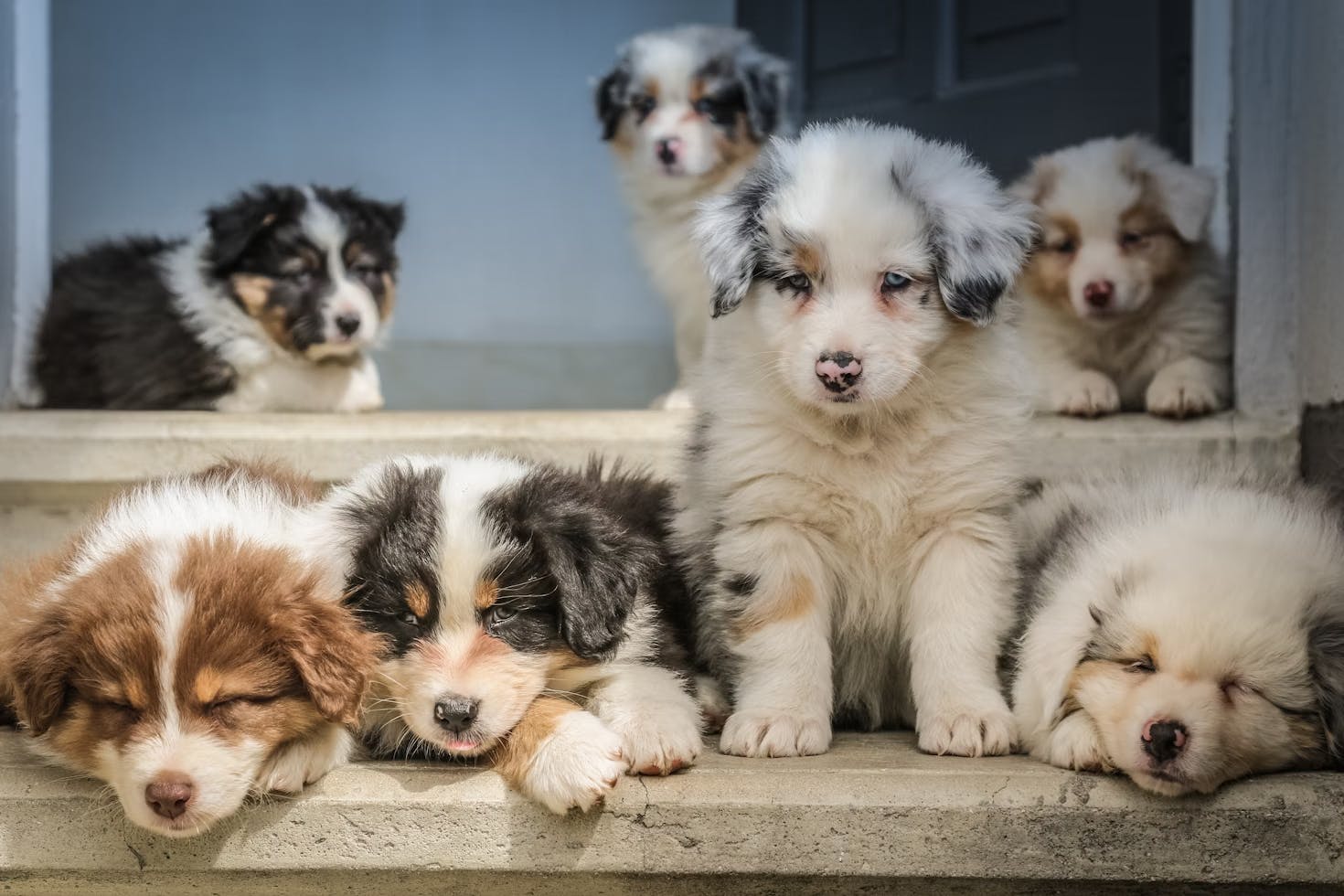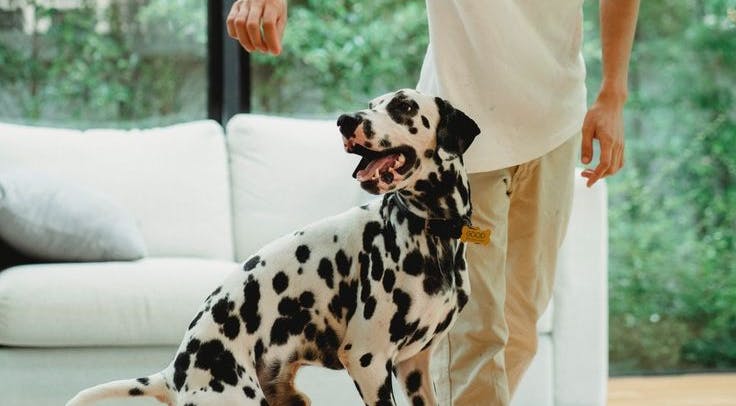Dog Socialization and Sensitivity Periods
If you're thinking about adopting a dog or have recently welcomed a puppy into your home, one topic is especially important: socialization. It lays the foundation for your dog's behavior throughout their life. The so-called sensitivity periods are particularly crucial. But what does that mean, and why should you pay attention to them? Let’s take a closer look together.

What is Dog Socialization?
Socialization means that your dog learns to interact calmly and confidently with their environment – whether it’s people, other dogs, different sounds, or new situations. Proper socialization ensures that your dog remains self-assured and friendly rather than fearful or aggressive when encountering the unknown.
The Sensitivity Periods: Timing is Everything
Sensitivity periods are developmental stages during which dogs are particularly receptive to new experiences. What they learn (or miss) during this time shapes their behavior for the rest of their lives.
1. The First Sensitivity Period (Around 3 to 12 Weeks)
During this time, a puppy's brain is a sponge, absorbing everything around them! Your puppy learns:
- Interacting with other dogs: Playtime with siblings or other dogs helps them understand canine communication, body language, and social rules.
- Interacting with humans: Cuddling, petting, and hearing a human voice builds trust. Meeting a variety of people (children, seniors, men, women) is key.
- Environmental stimuli: Puppies should experience different surroundings and situations during this phase – traffic, household noises, diverse surfaces (grass, sand, stairs), and more.
Why is this important?
Anything your puppy doesn’t encounter during this phase could trigger fear later in life. For example, if they don’t interact with other dogs early on, they may become anxious or reactive around them as adults.
2. The Second Sensitivity Period (Around 4 to 8 Months of Age)
This is your dog’s “teenage phase.” Everything you established in the first phase needs to be reinforced now. Your dog may become bolder and test boundaries. You might even notice them seemingly “forgetting” things they’ve already learned. Don’t worry – this is perfectly normal!
What’s Important Now?
- Consistent training: Stay patient and stick to your routines. Revisit basic commands to solidify their training.
- Positive experiences: Continue exposing your dog to new situations gently to prevent fear from developing.
- Patience with setbacks: If your dog suddenly becomes cautious of something familiar, give them time. Patience and positive reinforcement are key.
Tips for Effective Socialization
- Take it step by step: Avoid overwhelming your dog. Gradually introduce them to new situations. A short encounter with another dog or a few minutes in a new environment can be enough.
- Use positive reinforcement: Reward your dog for staying calm and curious. Treats, praise, or petting work wonders.
- Stay calm yourself: Dogs pick up on your energy. Your calmness will reassure your dog.
- Variety is key: The more your dog experiences, the better. However, ensure they get enough rest – downtime is just as important as new experiences.

Why Socialization Doesn’t End After Puppyhood
Even adult dogs benefit from socialization. If you adopt an older dog who didn’t experience proper socialization as a puppy, don’t worry! With patience and positive experiences, you can help them overcome insecurities.
What Happens If Socialization Is Neglected?
Lack of socialization can lead to:
- Anxiety or fear of other dogs or people.
- Overreacting to unfamiliar noises or situations.
- Aggressive behavior as a defense mechanism.
But don’t despair: with the right guidance and a loving approach, you can make significant progress, even later in life.
Conclusion: The Key to a Happy Dog
Socialization and sensitivity periods are crucial for ensuring your dog has a relaxed and happy life. The better your dog understands their environment, the more confident and trusting they’ll be. Remember: every positive experience you give them now is a gift – for them and for you!
Do you have questions or need support with your dog’s socialization? Feel free to share your thoughts in the comments or tell us about your experiences! 🐾


How to Prepare Your Home for the Arrival of a New Dog
Bringing a new dog into your life is an exciting experience! However, to make the transition as smooth and stress-free as possible for everyone, careful preparation is key. Setting up a safe and welcoming environment will help your new dog feel comfortable and secure right from the start. Here are some essential steps to get your home ready for the arrival of a new dog.

How to Gain the Trust of a Shy Cat
Bringing a shy cat into your home can be a rewarding challenge, but with patience and empathy, even the most timid cats can learn to trust. Many cats are naturally cautious, and a new environment can heighten their anxiety. Here are some valuable steps to help you build trust with a shy cat, one gentle step at a time.
Latest
From our blog
The latest industry news, interviews, technologies, and resources.